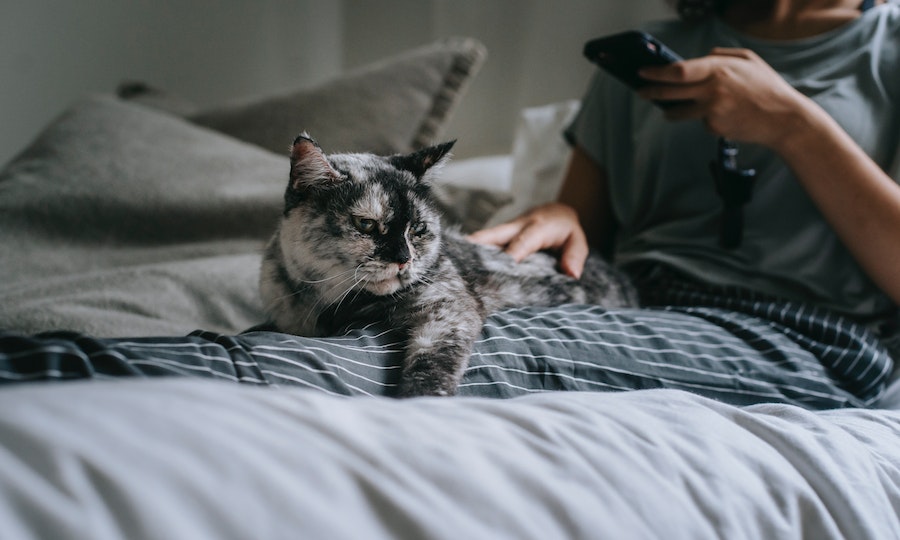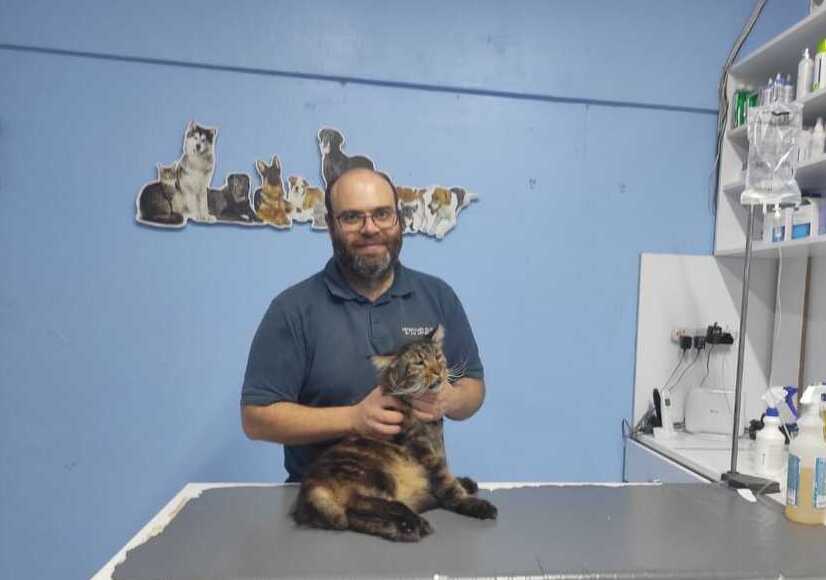
In the past few weeks, Cyprus has been facing a distressing situation as the number of sick and dying cats continues to rise at an alarming rate. Experts and pet owners alike have been gripped with concern as a more potent form of feline coronavirus appears to be spreading in the country, resulting in severe sickness and the tragic loss of thousands of cat lives.
This outbreak has raised significant questions about whether these cat illnesses could harm human health. Experts are working diligently to comprehend the causes and implications of these outbreaks, while anxious pet owners are desperately awaiting answers and guidance during this troubling time.
One major concern for cat owners is Feline Infectious Peritonitis (FIP), which stems from certain forms of the feline coronavirus. It's essential to note that this feline coronavirus is distinct from the human COVID-19 virus. While COVID-19 primarily affects the respiratory tract, feline coronaviruses typically reside in a cat's gastrointestinal tract. Ordinarily, these coronaviruses do not cause noticeable symptoms, and any mild signs, like diarrhea or discomfort, usually resolve as the cat develops immunity.

However, in certain instances, the virus undergoes mutations and transforms into highly virulent strains that attack white blood cells, allowing the virus to infiltrate different organs. This triggers an inflammatory reaction, leading to a diagnosis of FIP.
Dr. Christos Theoris, a Veterinary Doctor at Spyros Stavrinides Chemicals, explained that initial symptoms of FIP may include slight sneezing, eye discharge, loss of appetite, and lethargy.
“More severe forms of the disease include the "wet form," characterized by fluid in the chest and a potbellied appearance, and the slower but progressive "dry form," which may lead to neurological symptoms like difficulty controlling movement and coordination,” Dr. Christos Theoris stated.
Efforts are currently underway to combat this disease that has been plaguing the region. The Pancyprian Veterinary Association, Veterinary Services, and dedicated volunteers, including experienced veterinarians and animal-friendly associations, are joining forces to tackle the issue. One of their initiatives involves organizing webinars to educate the public about the disease and provide support to veterinary doctors.
Dr. Nicholas Ioannides from the Andreas Artemiou Veterinary Clinic highlighted that certain cats, especially those under 1 1/2 years old, are more vulnerable to the infection. Additionally, cats in high-density facilities, purebred cats, and male cats are also at higher risk.

“The exact number of infected cats and related deaths is unknown due to the expensive and specialized diagnostic process. However, many cats have tested positive for the disease, showing a strong connection between positive cases and the recent increase in cat deaths,” Dr. Nicholas Ioannides said.
FIP appears to be more prevalent in Cyprus compared to other parts of the world, raising concerns about a potentially significant decline in the overall cat population, particularly among stray cats. This decline could have far-reaching effects on the ecosystem since stray cats play a crucial role in controlling rat, mouse, and snake populations in areas with limited human intervention. Infected cats are typically isolated and provided with medical attention, and cat owners are advised to isolate their pets to prevent further spread.
Presently, there are no specific vaccines or natural products available for preventing or treating FIP. As an alternative, two human medicines are being employed: GS-441524, an antiviral drug that belongs to the nucleoside analog family and is derived from the antiviral prodrug remdesivir, and Remdesivir itself, which is a versatile antiviral medicine administered via intravenous injection.
Importing human drugs for FIP treatment has faced legal obstacles, but there is hope that specialized veterinary products will soon be imported to Cyprus. These products are expected to become the primary treatment options, despite their high cost ranging from 2000 to 4000 euros.
Despite the challenges posed by the feline coronavirus outbreak, the people of Cyprus demonstrated their unwavering determination and unity in safeguarding the well-being of their feline companions and themselves. Through collaborative efforts between experts, authorities, and concerned cat owners, they managed to understand the virus better and effectively contain its spread.
The historical significance of cats on the island became even more apparent during this crisis, as their enduring bond with the people proved to be a source of strength and resilience. With a deep-rooted cultural connection to these feline companions, the people of Cyprus were reminded of the importance of providing continued care and attention to protect their cherished cats amidst the emergence of new threats.
As the years passed, the captivating tale of Saint Helen's mission and the monastery of Saint Nicholas of the Cats continued to be told, passing down through generations. The story of how these cats arrived on the shores of Cyprus to combat venomous snakes became a symbol of hope and perseverance, reflecting the island's ability to overcome adversity.
The legacy of this crisis served as a poignant reminder of the value of cooperation and collective responsibility in safeguarding not only the health of animals but also that of humans. The enduring connection between the people of Cyprus and their feline companions remained a cherished aspect of their culture, strengthening their bond and resilience for years to come.































